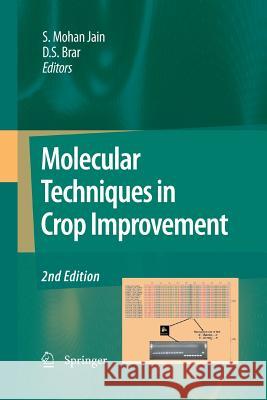Molecular Techniques in Crop Improvement: 2nd Edition » książka
Molecular Techniques in Crop Improvement: 2nd Edition
ISBN-13: 9789400795006 / Angielski / Miękka / 2014 / 772 str.
Most of the plant breeding programs aim to increase yield, disease and insect resistance, abiotic stress tolerance and to improve quality characteristics. The value of new plant breeding products and varieties in increasing food production has been demonstrated time and again. To meet growing need of ever increasing human population, we need to enhance food production for sustaining food supply. Furthermore, several biotic and abiotic stresses continue to threaten crop product- ity. Moreover with urbanization, land for cultivation is shrinking and several en- ronment concerns involving excessive use of fertilizers and agro-chemicals, soil and water pollution including water scarcity are key issues in increasing crop p- ductivity and food sustainability. Plant breeders therefore, has the major challenge how to increase crop productivity with limited land, limited water, limited che- cals and limited labour particularly in the context of global climate changes. In the genomics era, advances in molecular biology have opened new opportunities to accelerate plant breeding processes and in overcoming some of the above c- straints limiting crop productivity. Molecular markers have become important tools in the hands of plant breeders in marker assisted breeding and for enhancing the selection efficiency for various agronomic traits in precision 'plant' breeding.











